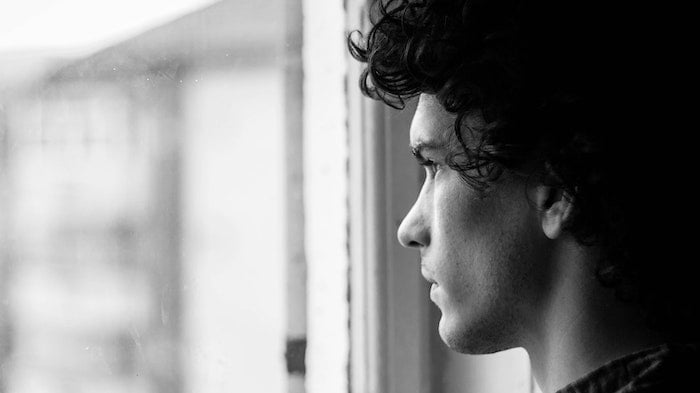Whether we’ve been involved in active addiction or not, the term “higher power” [1] is one that most of us have come across before.
For many, the concept is firmly rooted in religious belief, with this greater being referring to God. But to agnostics and atheists, this idea simply means having faith in something outside of the self.
In the context of addiction recovery, the higher power concept has a long-standing and important place in treatment programmes across the globe.
So, who founded this spiritual term for recovering from Substance Use Disorder? As with many popular recovery components, the answer is Alcoholics Anonymous (AA): the original 12-Step programme [2].
As one of the first organisations to coin the term higher power, the founders of AA emphasised the importance of spirituality when treating addiction. In their infamous manifesto, The Big Book of AA, the organisation’s creators stated that “a power greater than ourselves could restore us to sanity” [3].
First published in 1939, the original edition of this seminal text contains a lot of outdated terms (such as recovery being referred to as a restoration of sanity). Nevertheless, it provides an accessible way of understanding the higher power concept in addiction treatment.
For their 12-Step program to be successful, participants need to experience what is known as a spiritual awakening and give themselves over to a greater being.
The AA participants of old could solidify their recovery from addiction by praying to God and asking for guidance. It was thought that this religious practice would help them regain control over their lives.
This conscious contact with religion was thought to cure the spiritual component of addiction which, back in the 20th century, was thought to be a condition of the soul. After all, the disease model of addiction [4] was yet to be developed.
Why Might Someone Resist Finding a Higher Power?

In recent years, the higher power concept according to Alcoholics Anonymous has been criticised as too vague and difficult to grasp.
At the same time, the term’s inescapable religious connotations can steer many people away from including it in their recovery. The religious associations when combined with the negative emotions felt by SUD victims can cause resistance.
With this in mind, one example of why someone might be sceptical of the higher power concept is they feel it cannot involve atheism.
Some people grew up in an a-religious household where spiritual faith didn’t enter their family dynamic. Others may have grown up with a belief in God, before abandoning it further down the line.
Regardless of the situation, it can be very difficult for people to engage with a concept that they suspect goes against what they believe.
Moreover, they might think that if they attend an AA meeting, existing participants will try to coerce them into holding Christian beliefs.
Another cause of ambivalence is the idea of admitting powerlessness over a higher power: whether this is an actual entity or a concept.
After believing they have been in control of their addiction for so long, it can be hard for SUD sufferers [5] to relinquish this sense of control.
It can be scary to let go of this false sense of security, even if it’s founded in a belief system that is causing us more harm than good.
Changing the Narrative: Higher Power as an A-Religious Concept

Thankfully, people don’t have to reach a dead end in their recovery because they don’t believe in God; the higher power concept is available to anyone: it all depends on how you wish to interpret it.
This is where the criticism of higher power for being too vague works in its favour: it can be interpreted as pretty much anything.
Moreover, you don’t have to be religious to have a spiritual awakening and benefit from the influence of a higher power. While spirituality has historically been used in connection to religion, its basic meaning is far simpler.
The term spirituality means to find your meaning and purpose in life, which often ends in deeper personal discovery.
From spiritual awakening [6] and increased spirituality comes a way to access your higher power. Many experts have stated that anyone can become spiritual by finding what motivates them at their deepest level.
This can be a feeling, a concept, a community, or something entirely different. The most important part is that it should be something that adds value and support to someone’s life.
So, when viewed as a spiritual term rather than a religious one, the concept of a higher force has more room for manoeuvre. If someone is working through the 12 steps, they’ll likely encounter myriad examples of higher power during meetings.
This opens them up to different ways of thinking and helps shift the focus from substance abuse to what makes life worth living.
Examples of a Higher Power in Recovery

When finding an external power to believe in or values to live by, each person will find a different source of strength.
What someone chooses as their greater purpose will depend on their unique personality, their likes and dislikes, as well as their values.
While there are countless examples of what to use as a higher power in addiction recovery, there are nevertheless some common themes.
1. Nature
When connecting to something bigger than themselves, many people settle on the majestic power of nature and the environment.
Much like the concept of a deity, the Earth’s natural environment predates humanity, cannot be controlled without consequences, and will remain long after we’re gone.
It’s also very tangible and accessible. Unlike having an abstract concept as your higher power, connecting to nature is easy for lots of people: as long as you have a green space near your home, access to the ocean, or even the smallest of gardens.
Many individuals in recovery [7] take immense comfort from sitting in nature and taking in the sights, sounds and smells.
Many people choose to hone in on a particular aspect of nature, such as the ocean. When listening to the waves or watching the ebb and flow of the tide, it’s easy to appreciate the power of this body of water and see it as a higher force.
2. The Universe or Cosmos

Similarly to the idea of nature as a higher power, it’s easy to be awe-inspired by the expansiveness of the universe and many planets beyond our reach.
On their recovery journey [8], many people gravitate towards naming the cosmos as their higher power because it is a constant reminder that there’s something bigger than us and our problems.
In many ways, recognising the universe as a higher force is similar to having religious, creationist beliefs. The universe has existed for an incomprehensible length of time and is so large and wondrous that it grounds us in humility.
Just as those who believe in God’s plan admit to being a tiny part of his universe, so do people who recognise being a speck in the cosmos.
If the idea of having the universe as a higher power is too overwhelming, many people direct their view towards the moon.
The influence of the lunar cycle on human behaviour and emotions has been recognised for centuries and is central to astrological beliefs.
Also controlling the tides, the moon’s gravitational pull has been an important part of life on Earth for thousands of years, making it an obvious choice for a higher power.
3. Family and Friends
This example goes back to the idea of choosing what’s most important to you as a higher power in recovery. For many SUD victims, the locus of positivity and light in their life following addiction is their relationship with loved ones [9].
Rather than feigning a connection to something they cannot see or interact with, a real relationship can be a source of faith in itself.
Oftentimes, it’s not even the person (a friend, family member, or romantic partner) who becomes the higher power in someone’s recovery.
Rather, it is the feelings brought about by these connections: such as love, gratitude, and hope, that facilitate meaningful change in someone’s behaviour.
4. Love

The concept of love permeates all aspects of our lives and comes in countless different forms.
Whether this is learning to love yourself, loving someone else, or appreciating the world around you, this very grounding and humbling emotion is another great choice for a higher power in recovery.
Because there are so many different forms of love, it can apply to countless individuals in their addiction recovery journey. Even if someone hasn’t experienced romantic or platonic love, they might instead view the emotion as a set of values to live by.
This involves accepting oneself and others as they are, which is a transformative quality to have during addiction treatment and beyond.
5. The Arts
Music, dance, painting, literature: these are just the first examples that come to mind when we think of the arts. While each of these mediums is very different, they all share one thing in common: the ability to ground, unite, heal emotional pain, and give people something to believe in.
Whether it’s listening to your favourite artist, releasing tension through painting, or reading a good piece of literature, the arts are known for their healing properties.
Numerous rehab clinics incorporate art therapy and music therapy into their addiction treatment programmes.
Music in particular is a common choice for a higher power in recovery, as it can reach people in their darkest times.
There’s also a sense that the deeper meaning behind song lyrics or tunes transcends the person who created it, with art becoming bigger than the artist. As you can imagine, this is a great basis for a higher force in SUD recovery.
How Can Having Faith in a Higher Power Help Someone in Recovery?

While identifying a higher power is a positive exercise, you might be wondering how it can help someone in addiction recovery.
While grounded in spirituality, scientific studies have concluded that respondents who recognised a higher power during treatment remained abstinent for longer than those who didn’t.
Here are just some of how the higher power concept can strengthen sobriety and well-being [10].
1. Personalising The 12 Steps
As previously mentioned, the term “higher power” first appeared in the infamous AA text, and is the second step of the 12-article manifesto. As such, the higher force concept is often used in the context of AA or NA meetings and provides the chance to personalise the steps that follow it.
Identifying their own higher power in the early stages allows participants to create their version of recovery.
For example, someone who has chosen love as their version of a higher force will be able to utilise this further down the line.
During the ninth step: forgiveness, they can use their higher power to accept themselves and others, learning to love despite flaws and past wrongdoings.
2. Finding a New Sense of Purpose
During the more vulnerable days of early sobriety, many people find that they’ve lost their sense of identity and purpose. To replace the unhealthy relationship they had built with alcohol or drugs, those in recovery benefit from having something positive to focus on.
Because it’s something they care deeply about, incorporating a higher power into recovery can strengthen the motivation to stay sober.
Having faith in a concept, activity, or thing will also show recovering individuals that they are worthy of having a purpose in life. It will give them the confidence to build meaningful connections, continue treatment, and complete daily tasks.
3. Feeling Less Alone
During active recovery, there’s a risk that those battling addiction [11] will retreat into themselves and narrow their worldview. This sense of isolation can quickly become overwhelming, and lead to relapse if left unchecked.
Having a higher power to turn to, whether this is a group, hobby, or concept, can help broaden your horizon and make you feel less alone.
4. Learning to Forgive and Let Go
Oftentimes, the root cause of an addiction is past trauma, but it can also stem from co-occurring mental illnesses. Both of these potential causes require the individual to forgive themselves or someone else, which can be difficult, to say the least.
Having unwavering faith in something bigger than yourself helps put a lot of things into perspective. Suddenly or gradually, learning to forgive and let go of past trauma can seem attainable.
Confronting these emotions becomes an easier process when given a new sense of purpose, and something to believe in wholeheartedly.
Finding Your Own Higher Power

Everyone’s recovery journey is different, and while some people will access their idea of a higher power instantly, others will search for longer.
However, it’s also important o note that for many, the higher power concept is rarely static throughout their recovery.
In reality, your concept of a higher force might change countless times the longer you’re in treatment [12].
Many individuals in recovery note that their version of a higher power has changed since entering recovery, according to their needs at a particular time.
If you’re having trouble conceptualising your form of a higher power, various practices can help. The following examples are accessible to most people, and many can be completed in your own home.
1. Practice Mindfulness
Many people discover their higher power during a time of experiencing inner peace and relaxation: quieting any negative thoughts racing around their heads.
Mindfulness is the practice of bringing awareness to the present moment and setting a short amount of time each day to do this. All it involves is sitting still and being present: paying attention to the sounds, sights, and smells around you while breathing deeply.
By allowing individuals to ground themselves in the present moment, mindfulness strategies can unlock new emotions and ideas that help them connect to their higher power.
Oftentimes, mindfulness [13] is combined with meditation, yoga, breathwork, and other holistic activities.
2. Make a Journal of Your Thoughts
Journaling is the act of freely recording your thoughts and feelings as they arrive and is similar to mindfulness in many ways. This process of physically writing down how you feel can give structure to your search for a higher power.
Prompts to help you start journaling can easily be found online, including those that encourage you to reflect on life experiences and past emotions.
This can help put your recovery into perspective and show you what you consider most important in life moving forward.
3. Reconnect With Past Hobbies, or Discover New Ones
Exploring their innermost thoughts and feelings can be tricky for some people, and they may have to seek a higher power in the outside world. One of the most positive ways to do this is through engaging in hobbies and healthy activities [14].
This can be partaking in a new sport, engaging in something creative, or trying anything new for the first time. Some examples include cooking, yoga, team sports, painting, and making music. Anything that makes you happy and fills your free time will ultimately create more meaning in your life, and may even become your higher power.
4. Connect With Nature
We’ve all heard claims surrounding the healing and restorative power of nature, and many of these are at least partially true. Immersing yourself in natural surroundings, whether this is going on a jog through the park, a walk through the forest, or sitting in your back garden, can help you connect to a higher force.
Need More Help? Contact Our Specialist Team Today

The concept of a higher power in addiction treatment shows us that recovery looks different for everyone: there’s no one-size-fits-all solution.
If you’d like to learn more about the topics covered in this blog post or want to talk to someone about addiction recovery, contact our team today.
Choosing to seek help for yourself or a loved one is an integral step towards reclaiming your life. To speak to a professional for free [15], you can call 0800 326 5559, or contact our international hotline at 0330 333 8188.
References
[1] The Higher Power of the Twelve-Step Program, For Believers & Non-Believers The Higher Power of the Twelve-Step Program – Google Books
[2] Ok Rehab: 12 Step Programmes For Addiction 12 Step Programmes for Addiction | OK Rehab
[3] Alcoholics Anonymous: The Big Book The Big Book | Alcoholics Anonymous (aa.org)
[4] The Brain Disease Model of Addiction The Brain Disease Model of Addiction | Hazelden Betty Ford
[5] Ok Rehab: Drug Addiction, Signs & Symptoms Drug Addiction – Signs & Symptoms – OK Rehab
[6] The Leap: The Psychology of Spiritual Awakening The Leap – Google Books
[7] Self-Help/Mutual Aid Groups and Peer Support Self-Help/Mutual Aid Groups and Peer Support – Google Books
[8] Unbroken Brain, A Revolutionary New Way of Understanding Addiction Unbroken Brain – Google Books
[9] Family Therapy and the Treatment of Substance Use Disorders, The Family Matters Model Family Therapy and the Treatment of Substance Use Disorders – Google Books
[10] Innovations in the Treatment of Substance Addiction https://www.google.co.uk/books/edition/Innovations_in_the_Treatment_of_Substanc/vzbzuAEACAAJ?hl=en
[11] Drugs, Brains, and Behaviour: The Science of Addiction https://books.google.com.vn/books?id=n-OeI0fPx38C&printsec=frontcover&dq=substance+addiction&hl=en&sa=X&ved=2ahUKEwjk_Ynan639AhWDsVYBHQm3AoM4ChDoAXoECAUQAg#v=onepage&q=substance%20addiction&f=false
[12] Ok Rehab: Addiction Counselling Addiction Counselling – OK Rehab
[13] The Miracle of Mindfulness, The Classic Guide to Meditation by the World’s Most Revered Master The Miracle of Mindfulness – Google Books
[14] The Holistic Therapy File, The Complete Guide to Alternative Health Treatments The Holistic Therapy File – Google Books
[15] Ok Rehab: Help For Myself https://www.okrehab.org/help/myself/





